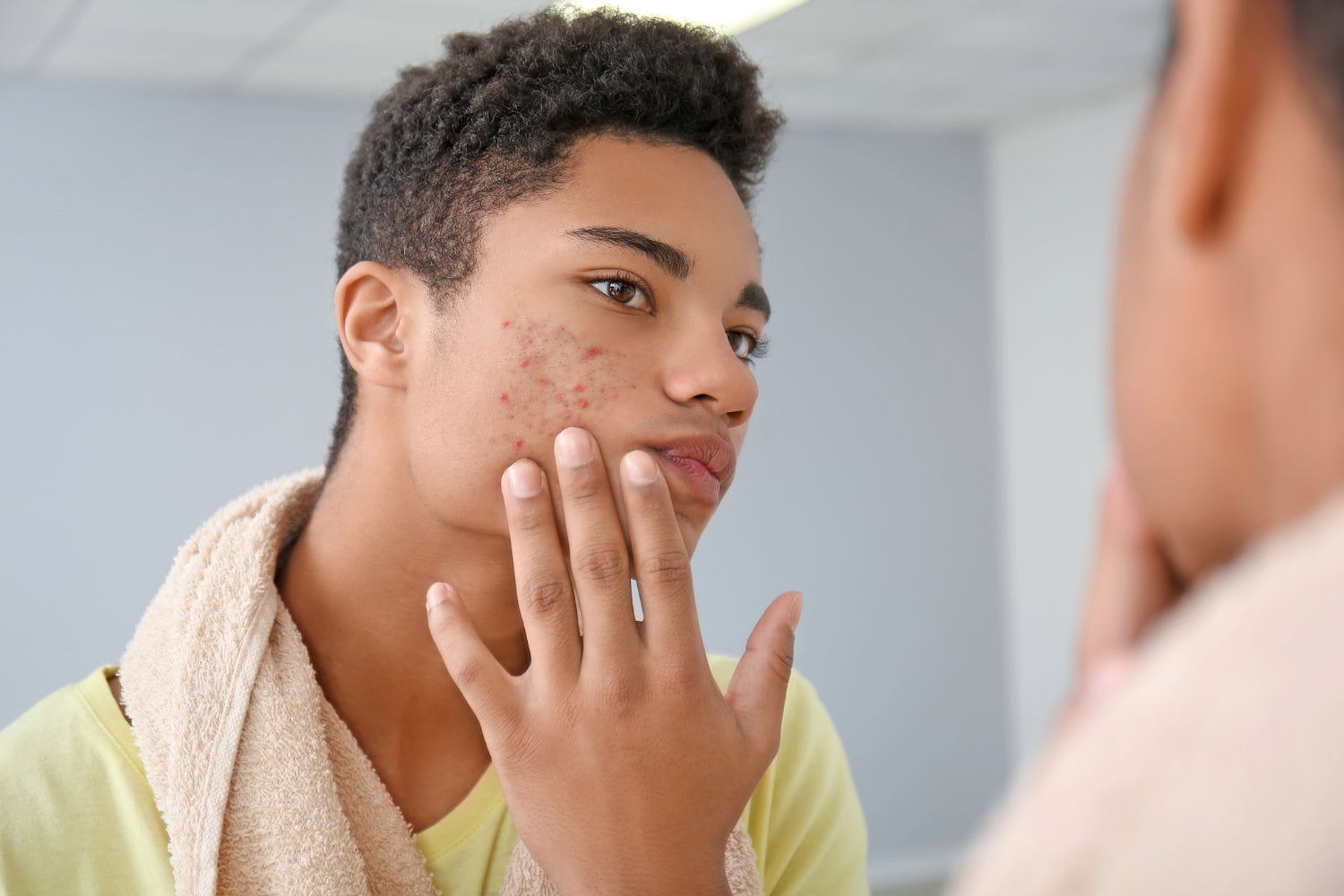U.K. DELIVERY £1.99, FREE FOR ORDERS OVER £25 | INTERNATIONAL DELIVERY FROM £9.99

How Hormonal Changes Can Impact Your Skin (and How to Manage It)
Hormones are the body’s natural messengers, responsible for regulating a wide range of functions. Among these functions is skin health, which can be significantly affected by hormonal fluctuations. From puberty to menopause, pregnancy, and even stress-induced changes, shifts in hormone levels can alter the skin’s appearance and behavior. This article will look into how different hormonal changes impact your skin and provide advice on how to keep your skin balanced during these phases.
The Role of Hormones in Skin Health
Hormones influence various aspects of skin health, including oil production, hydration, elasticity, and even the speed of cell regeneration. Key hormones like estrogen, progesterone, and testosterone play pivotal roles in determining the skin’s texture, moisture, and even susceptibility to acne. When these hormones fluctuate, whether naturally due to age or triggered by lifestyle changes, they can result in noticeable changes in the skin’s appearance.
Puberty and the Onset of Acne
For many, puberty is the first time hormonal changes lead to visible skin concerns. During puberty, the body produces higher levels of androgens, particularly testosterone, which can lead to an increase in oil production. This excess oil can clog pores and create an ideal environment for acne-causing bacteria.
Fortunately, there are a few ways you can manage acne during this time:
- Use non-comedogenic cleansers and moisturizers. Opt for mild, non-comedogenic cleansers to keep pores clear without stripping skin of its natural moisture.
- Exfoliate your skin. Ingredients such as salicylic acid can help manage acne by targeting clogged pores and reducing bacterial buildup.
We have a detailed guide on everything you need to know about acne and how to manage it effectively.
Menstrual Cycle - Monthly Hormonal Fluctuations
Many women notice changes in their skin’s appearance throughout their menstrual cycle. The week before menstruation, levels of estrogen and progesterone drop, while testosterone levels remain relatively stable. This imbalance often triggers an increase in sebum production, leading to breakouts, especially around the chin and jawline.
Here are a few tips to manage acne if you notice changes during your menstrual cycle:
- Adjust Your Skincare Routine. In the week leading up to your period, consider incorporating products that can help control oil production, such as sea buckthorn or clay masks.
- Avoid Heavy Makeup. Heavy makeup can clog pores and exacerbate breakouts. Instead, try a lightweight, non-comedogenic foundation or tinted moisturizer.
For moderate to severe cases of acne, your GP may recommend other treatments such as a birth control pill that can help stabilize these fluctuations and reduce breakouts.
Pregnancy - Hormonal Shifts and Pregnancy Glow
Pregnancy is another period of significant hormonal change, with elevated levels of estrogen and progesterone. These hormones can lead to increased blood flow, often resulting in what’s commonly known as the “pregnancy glow.” However, pregnancy can also cause pigmentation issues, such as melasma (dark patches on the skin), and increased oiliness or sensitivity. Here are a few ways you can help to manage these changes:
- Choose Pregnancy-Safe Products. Certain skincare ingredients, such as retinoids, should be avoided during pregnancy. Opt for gentle, pregnancy-safe options like vitamin C for brightness and hyaluronic acid for hydration.
- Protect Against Melasma. Hormonal changes can make the skin more susceptible to pigmentation. Daily sunscreen use is essential to prevent dark spots and hyperpigmentation.
- Keep Your Skin Hydrated. Hormonal shifts during pregnancy can sometimes make skin feel drier. Use a hydrating serum and moisturizer to keep your skin soft and supple.
Perimenopause and Menopause - The Effects Of Aging
As estrogen levels decline during perimenopause and menopause, skin changes can become more pronounced. Estrogen is responsible for collagen production, skin elasticity, and moisture retention. Lower estrogen levels can lead to drier, thinner skin that is more prone to wrinkles and sagging. Additionally, androgen levels may become more pronounced relative to estrogen, which can sometimes lead to adult acne. Here are some tips for caring for your skin during menopause:
- Moisturize. With the skin’s moisture levels dropping, a rich, hydrating moisturizer is essential.
- Consider Retinoids to Combat Aging. Retinoids encourage cell turnover and help stimulate collagen production, which can counteract some of the visible effects of aging.

Stress-Related Hormonal Changes
Stress can cause the body to produce cortisol, a hormone that can exacerbate skin issues. High cortisol levels can lead to increased oil production, inflammation, and even a breakdown of collagen over time. This can result in acne flare-ups, redness, and accelerated signs of aging. To help manage stress-related changes in your skin, consider:
- Focusing on Stress Management. Regular exercise, meditation, and a consistent sleep schedule can help regulate cortisol levels.
- Hydrating to Combat Skin Dehydration. Cortisol can also contribute to dehydration, so be sure to use a hydrating serum and moisturizer to keep your skin balanced.
Conclusion
Hormonal changes are a natural part of life, and while they can present challenges for skin health, understanding how these changes affect your skin can help you better manage them. By choosing products and routines that support your skin’s needs through each phase, you can keep it looking and feeling its best. Remember, balance is key - nourish, hydrate, and protect your skin, and it will reflect the care you give it.
